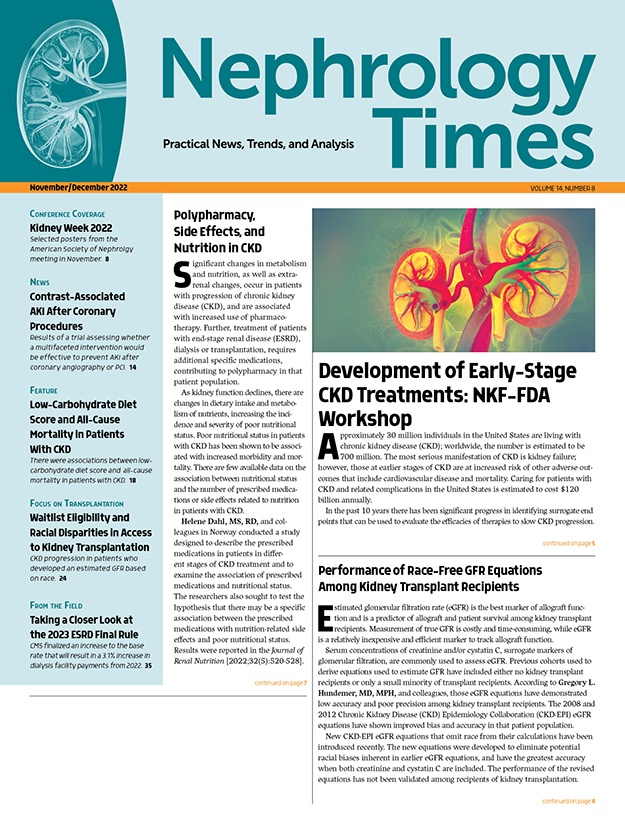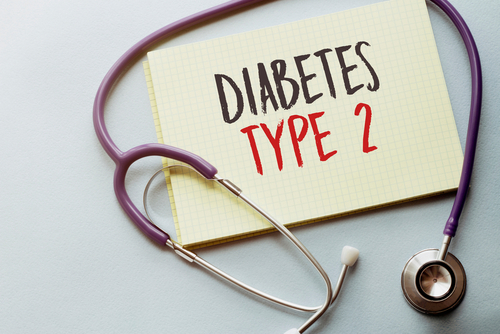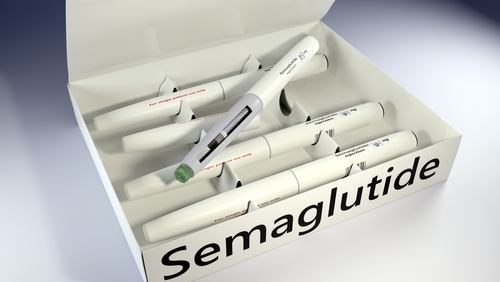
During a poster session at the American Society of Nephrology Kidney Week 2022, Thomas Mavrakanas, MD, MSc, and colleagues reported results of a systematic review and meta-analysis of the effect of sodium-glucose cotransporter-2 (SGLT2) inhibitors on cardiovascular and renal outcomes across groups of patients with varying levels of kidney function. The poster was titled Impact of SGLT2 Inhibitors on Cardiovascular and Renal outcomes According to Baseline Renal Function: A Systematic Review and Meta-Analysis.
The researchers conducted a PubMed/Medline search of randomized, placebo-controlled, event-driven outcome trials of SGLT2 inhibitors versus active or placebo control in patients with and without chronic kidney disease (CKD) from inception to February 1, 2022. CKD was defined as an estimated glomerular filtration rate of <60 mL/min/1.73 m2.
The primary outcome of interest was cardiovascular death. Secondary outcomes were hospitalization for heart failure, major adverse cardiovascular events (MACE), progression to kidney failure, and all-cause mortality. A random-effects model was used to estimate relative risk (RR).
The search identified 11 randomized controlled trials for inclusion in the analysis, representing a total of 77,541 patients, including 28,515 with CKD. There was an association between use of an SGLT2 inhibitor and a lower incidence of cardiovascular death in patients with CKD compared with placebo (RR, 0.87; 95% C, 0.79-0.95). There was also an association between the use of an SGLT2 inhibitor and a lower incidence of heart failure in patients with CKD compared with placebo (RR, 0.65; 95% CI, 0.59-0.70).
Risk reduction with SGLT2 inhibitors was more important among patients with CKD compared with patients without CKD (P for interaction = .03). Among patients with preexisting CKD, There was an association between use of SGLT2 inhibitors and a lower incidence of CKD progression compared with placebo (RR, 0.74; 95% CI, 0.63-0.88). There was also an association between use of an SGLT2 inhibitor and a lower incidence of MACE and death from any cause among the patients with CKD, compared with placebo.
“SGLT2 inhibitors offer strong protection against cardiovascular and renal outcomes in patients with CKD. These results strongly advocate in favor of using these agents in patients with CKD,” the researchers said.
Source: Mavrakanas T, Tsoukas MA, Sharma A, Gariani K. Impact of SGLT2 inhibitors on cardiovascular and renal outcomes according to baseline renal function: a systematic review and meta-analysis. FR-PO749. Abstract of a poster presented at the American Society of Nephrology Kidney Week 2022, November 4, 2022, Orlando, Florida.







 © 2025 Mashup Media, LLC, a Formedics Property. All Rights Reserved.
© 2025 Mashup Media, LLC, a Formedics Property. All Rights Reserved.